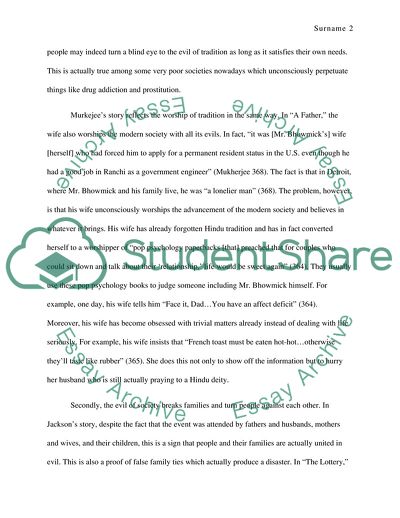Cite this document
(The Theme of the Evil of Society in Shirley Jacksons The Lottery and Essay, n.d.)
The Theme of the Evil of Society in Shirley Jacksons The Lottery and Essay. https://studentshare.org/literature/1825402-american-literature
The Theme of the Evil of Society in Shirley Jacksons The Lottery and Essay. https://studentshare.org/literature/1825402-american-literature
(The Theme of the Evil of Society in Shirley Jacksons The Lottery and Essay)
The Theme of the Evil of Society in Shirley Jacksons The Lottery and Essay. https://studentshare.org/literature/1825402-american-literature.
The Theme of the Evil of Society in Shirley Jacksons The Lottery and Essay. https://studentshare.org/literature/1825402-american-literature.
“The Theme of the Evil of Society in Shirley Jacksons The Lottery and Essay”. https://studentshare.org/literature/1825402-american-literature.


